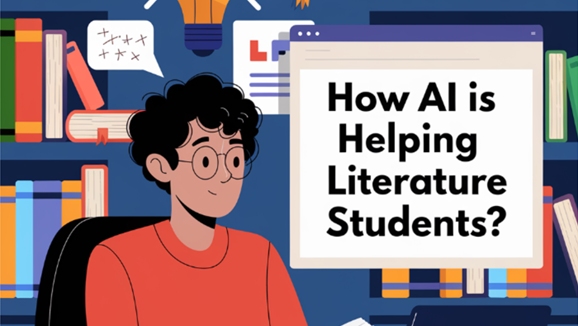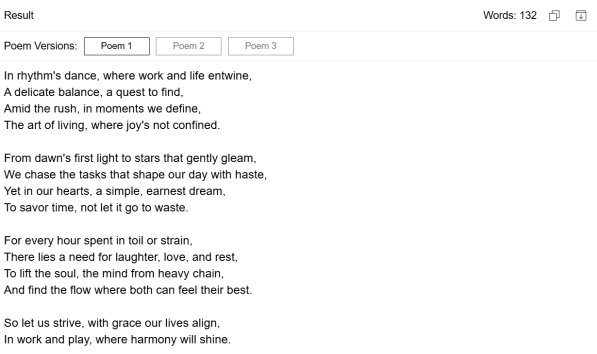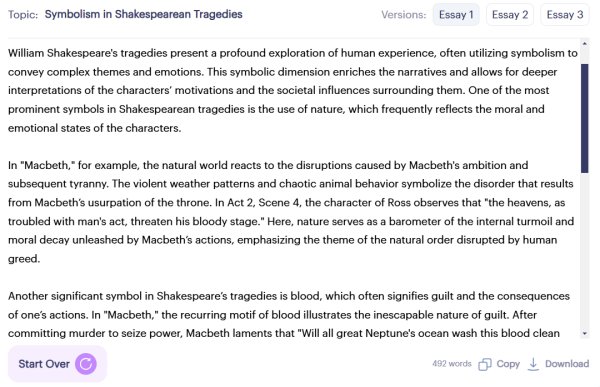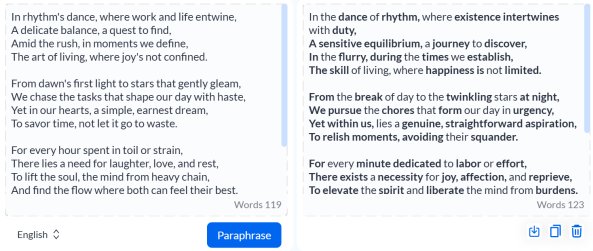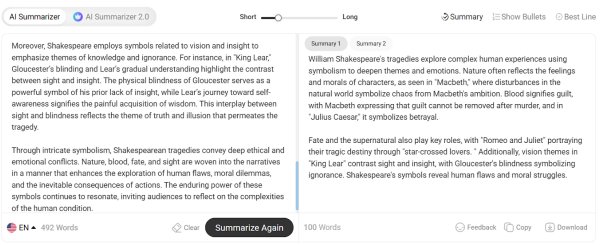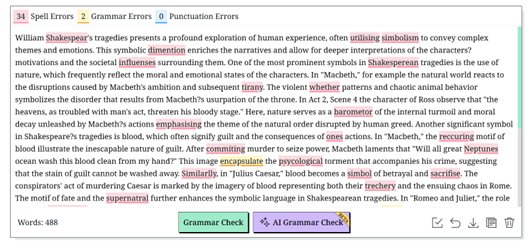Artificial Intelligence (AI) is evolving the ways of learning for students. According to a study, 97% of higher education students use AI tools for learning.
Another study by AIPRM mentions that 39% of the students use AI to generate content for curiosity.
The same is the case for those who study literature. They always like exploring the world of words, stories, and emotions.
But how can AI help them in learning?
Well, first clear your mind about AI. It is not just about robots or tech jargon. It can assist students well in their studies.
In this article, we are going to show you ways AI is transforming the learning process for literature students.
5 Ways AI is Helping Literature Students
Below we have shared 6 ways AI is helping literature students in their studies.
1. Creating Poetry
Creating poetry – ask a literature student about its worth. They can tell you how much imagination and creativity are needed for this. But sometimes students fail to brainstorm, or you can say they are facing a complete block of ideas in their minds.
That is where AI can assist them well. Some tools can help them create poems based on specific themes or emotions. One such tool comes from
Editpad.org – a well-known online notepad.
The AI poem generator tool by Editpad seems like a good example of how technology can inspire creativity among students. Using this
AI poem generator students can craft unlimited poems for free which they can use further to reflect their sentiments.
To use the tool all students need to do is input the topic or some keywords related to the theme, choose the length required, and hit the Generate button.
That’s it.
The tool will provide them with a perfect poem in less than a minute.
Below we have shared the screenshot of a poem we generated using the AI poem generator by Editpad.org.
Using such tools students can generate poems in different types which helps them understand poetry structures like sonnets, haikus, and free verse. As you can see the output that we have generated above is the sonnet type.
2. Writing Essays
When it comes to literature education, essays are thought to be the backbone. They require logic, structure, and sometimes strong arguments.
But nowadays AI essay generators have taken over the market. These tools simplify the process and assist students in drafting different types of essays which they get to use to understand the structure and learn how to put arguments the right way.
One such AI essay writer is
Essayness. It lets users generate essays by simply inputting the topic, choosing the length and type of essay, and hitting the Generate essay button.
For example, when tasked with writing about “Symbolism in Shakespearean Tragedies,” the tool writes an essay with key sections like introduction, body, supporting points, and conclusion (as in the below image).
Such tools can save time for literature students by providing structured content suggestions. It also helps improve writing by exposing students to well-organized examples.
3. Improving Writing
To interpret and analyze literature, students must have strong writing skills. According to a study,
50% of high school graduates< do not have good skills for college-level writing. That looks like a literacy crisis.
Today’s students need to work more on their skills. As they are important for every digital business nowadays. That is where AI tools such as
Paraphraseonline.io are assisting them well. They help students in bringing a better tone to their writing.
If you are wondering how, here is the answer to that.
Remember the poem we generated while talking about the first way. Suppose, being a literature student, you want to make it more creative or simple. What you can do is put that poem into the paraphrasing tool and it’ll change its tone in seconds like below.
By trying its multiple modes, you can make different versions of the poem which will help you learn new vocabulary and writing styles.
4. Summarizing Texts
Being a literature student, you might have come across analyzing a poem or an essay. If so, you might already know how daunting lengthy texts can be. But there are tools like
Summarizer.org that help students distill complex works into concise overviews.
For example, if you want to summarize an essay to understand the key idea or its context you can simply put it into the tool and hit the summarize button. As we did below for an essay we generated previously.
As you can see in the above image, the tool has created a concise version of a 500-word essay. And the notable thing is that the tone it has used is very simple making it easier for students to get into the idea.
Students can use AI summarizing tools to quickly grasp the main ideas of assigned readings. Plus, they can prepare for class discussions or exams without rereading entire texts.
5. Perfecting Grammar
Grammar accuracy, no one better understands its importance than literature students. It is essential for their academic submission. Errors can detract from even the most important arguments.
That is where grammar-checking tools like
Grammarcheck.ai jump in. They let students identify and correct grammatical errors.
For example, when they put their text into a grammar-checking tool, it’ll highlight possible mistakes. Plus, some like Grammarcheck.ai also provide real-time suggestions for improvement (as shown in the text below).
Use AI Tools to Learn, Not to Cheat
While AI tools are helpful, it’s important for students to use them responsibly. These tools are meant to assist in learning, practicing, and improving skills. They are not here to replace genuine effort or be used for cheating.
For example, students can use the tools mentioned above to practice
writing essays, crafting poetry, or summarizing texts as mock tests or brainstorming ideas. This way, they gain knowledge and refine their skills.
Misusing AI for academic shortcuts, however, defeats the purpose of learning and can harm their academic integrity. So, always use AI as a supportive guide to enhance your abilities. Not as a way to bypass the learning process.
Closing Thoughts
AI is transforming the way literature students learn. AI tools make complex tasks easier and more engaging. They empower students to enhance their creativity and academic performance. By using artificial intelligence technologies, students can explore literature more effectively and develop essential skills for their academic and professional journeys.


 ☰
☰
